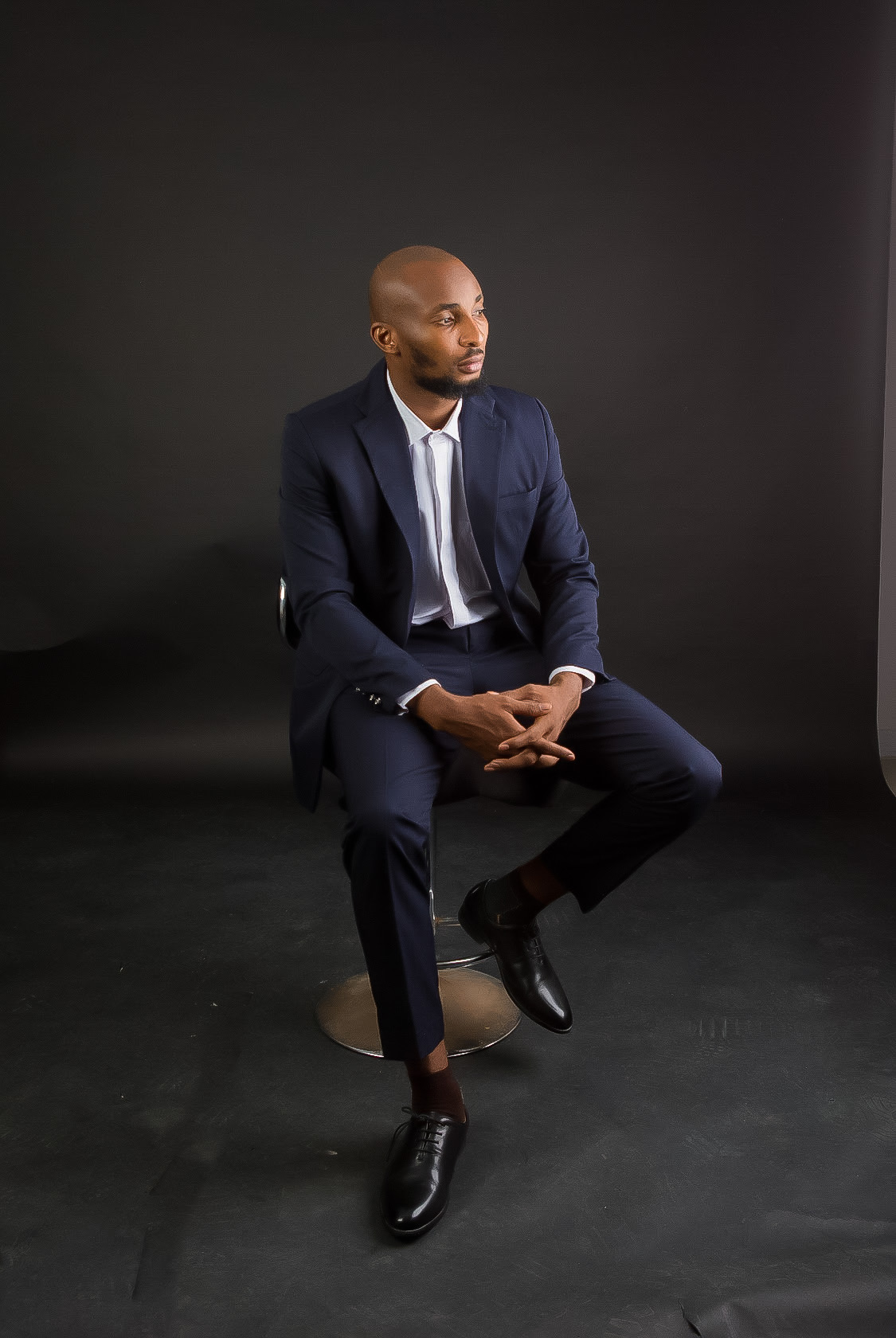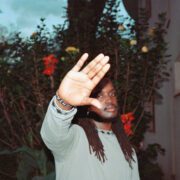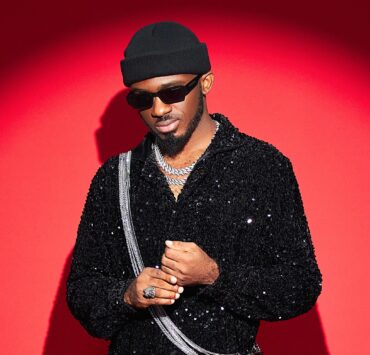Since its foundation in 2021, Audience Attention Management is growing into becoming one of the most promising Management and Entertainment Companies in Nigeria. The company already has a wide bandwidth of network within the cities of Lagos, Accra, Kenya, Liberia, Uganda and South Africa It works in every aspect of modern entertainment which include but is not limited to recording artists and producers, songwriters and other music creators. Imperative to note, Audience Attention Management is a full-service organization which supports a diverse roster of talent through artist management, artist Development, touring, production, strategic brand development and all things music related beyond these scopes. Audience Attention Management was founded by Jonah Chukwu Orji, an experienced Music Executive in Nigeria. He carries out his role within the company as its Head of Marketing and Strategy.
Jonah was formerly Head of Label Operations at DistroPlug, a Music Distribution and Label services company based in Accra, Ghana. During his time there, He played a leading role in broadening Distroplug Services’ business by ensuring the company’s independent label partners and Artists were provided with the custom services they needed to successfully market, promote and monetise their music. Prior to DistroPlug, He was Executive Vice President of the Bunna Empire, overseeing its business operations. Interestingly, Jonah actively plans to participate in social causes as a vehicle for his long-term philanthropic goals, through his newly founded NGO – The Jonah Chukwu Orji Foundation.
Jonah Chukwu Orji’s stated influences as a manager, music executive and creative entrepreneur are noteworthy names which include Jimmy Lovine, Jay Z, Kanye West, Dr Dre, Diddy, Braun Scooter and Pharrell Williams – ceiling-shattering icons who have been the blueprint for entire career. His greatness barometer reads:
“Ideas are not enough to start things. Anybody can have a management company or record label but can they do it well? What I’m trying to prove is that I can do it well.”
With all the moments of success that Jonah has acquired within the time he has spent working in the music industry, it may be easy to forget that He is only 28 years of age. He took a moment off his schedule to have a conversation with Drummr about his journey so far and where it could be taking him next. Jonah joins our Zoom call.
Hello Jonah, welcome to this conversation. May you kindly describe yourself and your career so far for someone who’s just meeting you for the first time and would love to know what you do?
Hello Drummr, thanks for having me. I describe myself as a creative entrepreneur, Investor and Strategist. I have a fascination for things that are quite complex and [things that have to do] with the business world; the different ways of making money and ways of making things happen have always interested me. In the creative world it isn’t necessarily as traditional as selling lemons on a lemon stand. Finding out how that works in regards to film, TV, music, tech and art is how I got into doing what I do now.
Hmm. I can’t help but ask, what are the most profound ways that your upbringing has affected who you are and your hunger to succeed?
That’s a good question. Obviously losing my dad at 13 was just like, I didn’t know if life would ever go on. When you’re young, you always think that your parents are the guide to life. When you’re 13 you are still questioning things like, You think as a kid you’ll never be able to learn all those things. Losing him was such a pivotal moment because it really made me realize that I had to fill that role, especially with my mom, my sister and my three younger brothers; I knew I had to go into survival mode and do whatever I could to take care of my family.
That event must have had a great psychological effect on how you began to approach life. Of all the ways to go, why and how did you get into the music industry?
I’m an avid music listener. I used to sell music CDs on the streets of Lagos with my uncle. In school, I was into sports and music and I remember my uncle bought a 2face first album and how I felt the first time I listened to African Queen. That was the first time I truly fell in love with music. Forget about the music business in general, that was the first album that made me love music, get music and learn how it could change your life. From then on I always wanted to find new music, so I loved scouring the net using SoundCloud. I even used to reach out to the artists who had social media by messaging them. A lot of the time the artists weren’t like the big, massive acts. I liked to dig deep and find what people were talking about that hadn’t blown up yet. I listened to all the big stuff too like Drake and whoever was out there popping, but a lot of the stuff that was popping to me wasn’t really that big. I did little meet and greets and it was a good way of getting to understand the industry and build up my contact list.
I’m pretty sure your real industry experiences started in Lagos. Now that you’ve grown and have traveled a bit, do you think it’s harder being a creative entrepreneur outside of Lagos?
Yes, I think so, if you’re not willing to travel. With Lagos being the epicenter of the creative industries and the economy in Nigeria, there are obviously more opportunities when more conversations and more decision-making are happening there. The closer you are to Lagos, the more opportunities you have. With me being based in Lagos and Accra, I’m slightly farther away but it doesn’t stop me. There are no border control as far as I know and see, so it’s just about seeking those opportunities. I’ll admit that it’s quite hard when it’s not on my doorstep.
Even so, what has this whole experience taught you as a manager?
I don’t think I’m ever going to get as stressed about small things like I used to! I think resilience and determination are very important, and also coming to terms with the reality that you just have to figure it out yourself and keep going. This has been a very big lesson. Also, I’ve learned to depend on tapping into my resources, creatively and personally.
You have garnered experience from your time at Bunna Empire and DistroPlug. Why did you decide to start up your management company and what motivated you to do so?
When I was at DistroPlug I worked with a lot of independent artists and it’s sad to say that I discovered that many of them don’t have a direction or someone to help them. That was why I founded Audience Attention Management. I’m super passionate about the artists I work with. I started my own company because I only wanted to work with artists that I wanted to spend 100% of my time on, and you can only spend 24/7/365 on artists that you truly love. I approach the subject of trust with a two tier 95/5 rule: my clients hold 95% of the creative control while I chime in only 5% of the time. Inversely, I handle 95% of the business with 5% advice from my clients. I want them to have complete control over their creative input and allow me to do what I do best, which is to run the business side of, and sell whatever is created. If I have to be involved in the creative, I will not be as effective as I would be with the business.
Where did your vision for Audience Attention Management come from initially?
It came from the point when I decided I wanted to get into exploring and understanding music more. I wanted to create a 360-degree entertainment company encompassing my broad interest in film, TV, and sport. That’s how the vision came about. Anything’s possible if you put your mind to it. However, as a whole organization and company, we want to help talents make those kinds of things happen by working with talented people. Hopefully in five to ten years from now we’ll do that in multi-disciplines; I want film, TV, and sport to be a part of Audience Attention Management – whether that’s by having different businesses under Audience Attention Management or having them branded as Audience Attention Management.
How important is capital when starting a music management company?
It depends. It doesn’t cost me money to manage clients unless i sign them to development deals and production deals. Most of the people we manage or do third party management are generating revenue already. We are at a point where we have operations and overhead them, so we mostly manage mid-level clients. If a talent isn’t generating revenue, then we sign them to an early developmental deal and that’s where it does cost money. But it’s important to find talent early, believe in them, and help them get their point across.
What’s your Managing process at Audience Attention Management?
If it’s good, then we manage it! The way I see it is, if I like it, there must be other people out there that feel the same way. If I find a thousand or five thousand fans then an artist has a good chance of having a career, I don’t necessarily work with artists based on the music I’ve seen or heard. It’s more about the feeling someone gives me and what I can see in them. Sometimes you don’t know specifically what that’s going to look like, but that’s why I think the A&R process is a bit of a gut feeling.
With all the progress being made in the industry today, what do you think has been the most important change in a manager’s role?
I think generally, it’s the fact that the manager has to take on a tremendous amount of responsibilities, wear a lot of different hats.
In your experience, what is the key to developing a newly found artist?
I pride myself on being a marketing and promotion guy because marketing is all about coming up with creative ways to sell a concept. This is the reason why I don’t treat each artist the same and I’ve never given an artist a big break the same way. You have to find out what works for each artist, where they need to improve at, and then provide them with the tools to help and provide that exposure. Whatever it is, stay true to your lane. And that’s what I want to make sure all artists do – stay true to who they are and what they do.
How do you Scout for talent and what do you look for in discovering new talent?
The studio. I believe it’s the best location. A lot of dope artists and dope producers gravitate towards each other. You can meet random artists in the studio and we might be able to do great things together. Also, you can always find people online. You could get a link through Instagram ,SoundCloud, twitter, or even publications like Drummr. There’s just so many outlets these days. But first and foremost, the studio.
On what I look for in people who are talented; I look for someone that’s different of course! I also look at their work ethic because no one is going to outwork me. If you can, then I’m listening. Finding the best way to get the most out of an artist is very important and I look to do this each time.
What advice would you have for up and coming artists?
Be patient. There are a lot of good people in this world and in this industry but you will deal with your fair share of things not going your way. A lot of people get in this industry and want to do everything you’re doing without understanding the process. Be patient. Every artist I work with understands that they have to put in the work. A lot of artists don’t just understand the sleepless nights and hard work it takes to be great, and that’s really what it takes.
How do you manage your talent’s expectations in what you can do for them?
I think it’s just providing them with great communication. I handle all of the negotiations on splits and everything. I work more on building brands on our artists and producers because at this point, they’re coming out into the forefront in Afrobeat culture. Things like Editorial Playlists put visibility and focus on them. I also look at producers as artists and want to build massive brands out of them.
You have been incredibly successful in your career so far. Do you think that’s all down to hard work or do you think it’s important to have a support network around you to achieve goals?
I think it’s down to hard work. Within this industry or any industry, you always have to have
some sort of luck, but I really do believe that you can create your own. It’s about putting yourself in situations and opening yourself up to different experiences with different people.
From there, opportunities come, and you’ve got to make sure you take them.
What advice would you give to a young manager starting out today?
Experiences are what makes a manager. In my first two years doing this, I made no money. I was spending everything that I made to [commission] press photos and things. When you have nothing, nobody does anything for free; the fucked up part of it is when you start making money and [your artist] becomes famous, everyone starts doing everything for free. It’s the complete opposite of how it should be. But the biggest thing for managers is that you have to really believe in what you’re doing. Management involves a lot of luck, and good management is really about what you do when that luck finally hits. If you have acts that are popping off but then they’re mismanaged, a week later, nobody’s talking about your act again. So have a strategy to build, for the next six months at least. ‘Cause it’s not a thing of joy, and won’t be easy when something big happens and the fact of it gets forgotten.
In your opinion, what are some of the keys to success in artist management?
Sacrifice – my clients are my number 1 priority. Sometimes I even think about them more than myself. I spend time with them sometimes more than my own family. You’re making a self-sacrifice because you’re putting someone’s needs daily over your own. Their successes become your successes and their failures become yours as well. So when you’re living that way, it brings on a different level of responsibility. Self-fulfillment in your career is based on your wins whether it’s a successful album or award and it’s easy to become consumed with those wins. In order to do that though you have to work hard and become synonymous with your clients.
Finally, what advice would you give to someone who is starting out as a manager?
Make sure you know who you’re dealing with. I talk to artists for maybe three months, six months, sometimes a year, just helping them, getting them together, I might get them to the point they’re putting music out and I won’t even have signed them yet. I’m very picky about who I sign. If you’re going to work with an artist, make sure that you 100% believe in that
person. There has to be a reason you’re willing to base your life around theirs, because that’s what this job is. Also never allow money to be an excuse. Knowledge, Respect, Humility and hard work have opened every door I’ve ever needed. I don’t come from a wealthy family And I wasn’t given anything but I never put limitations on myself or my dreams. There is nothing in the world you can’t do if you’re willing to put the work in to achieve it. Also, [artist] managers should learn every aspect of the business – learn publishing, learn touring, learn everything you can – so that you can bring value.





